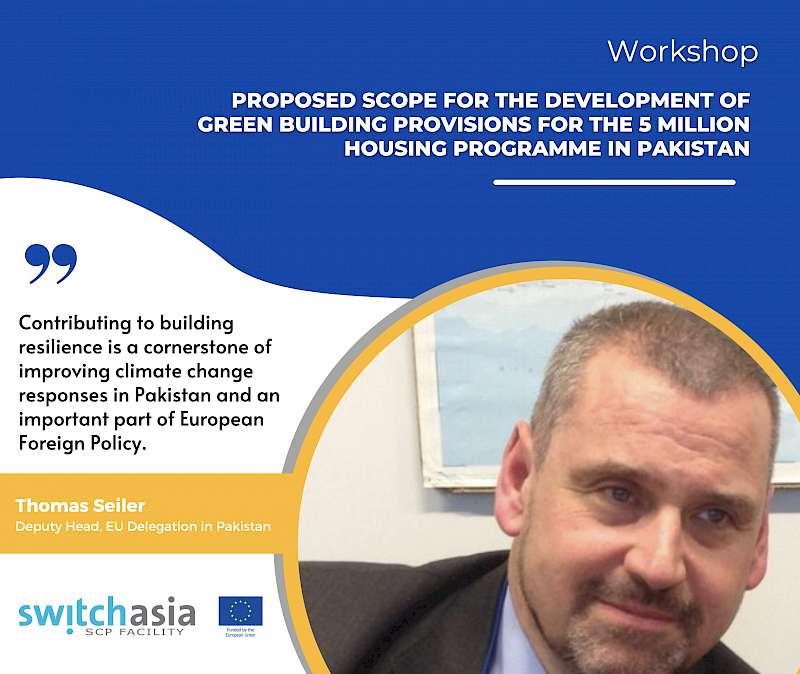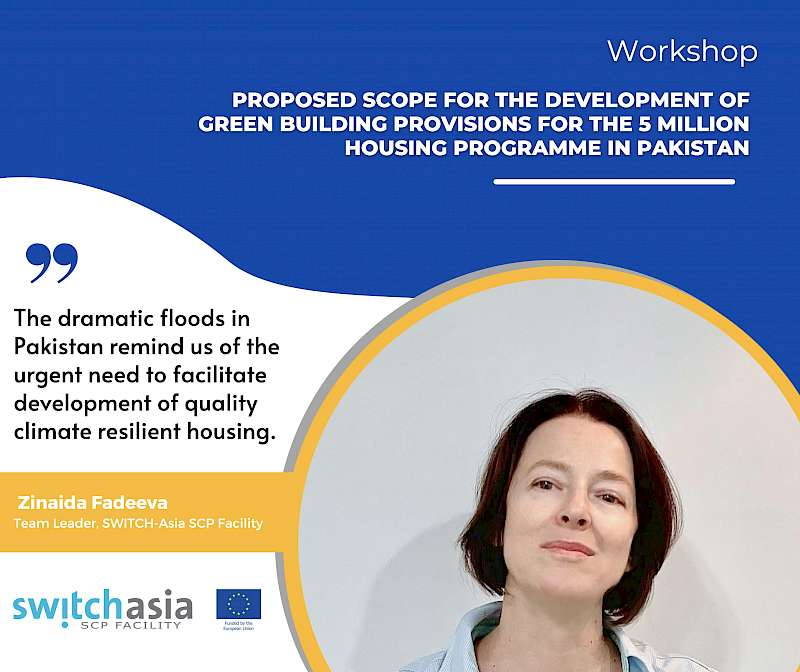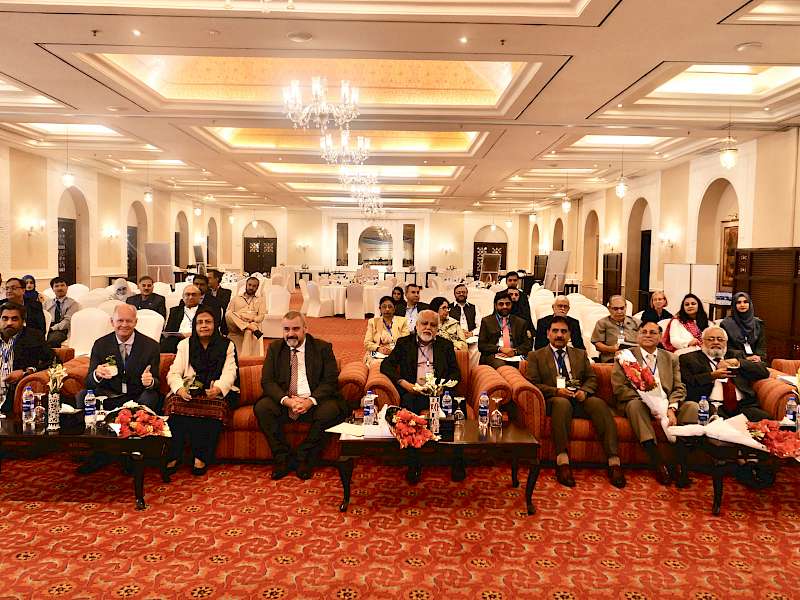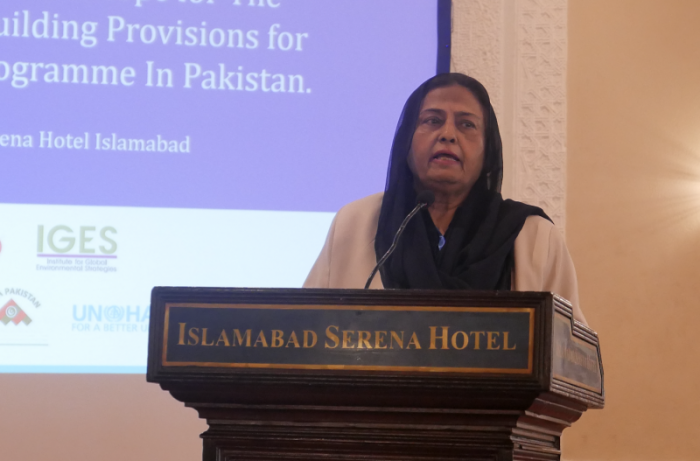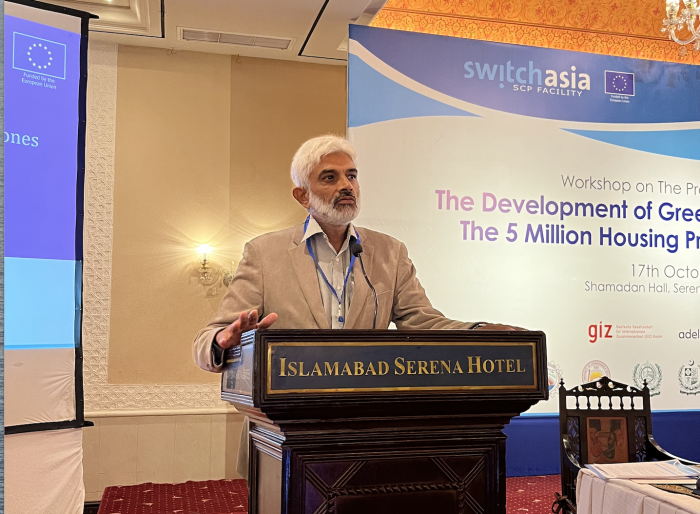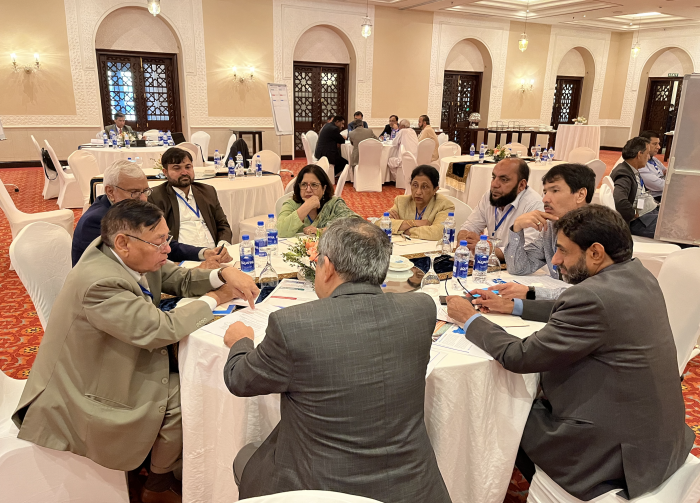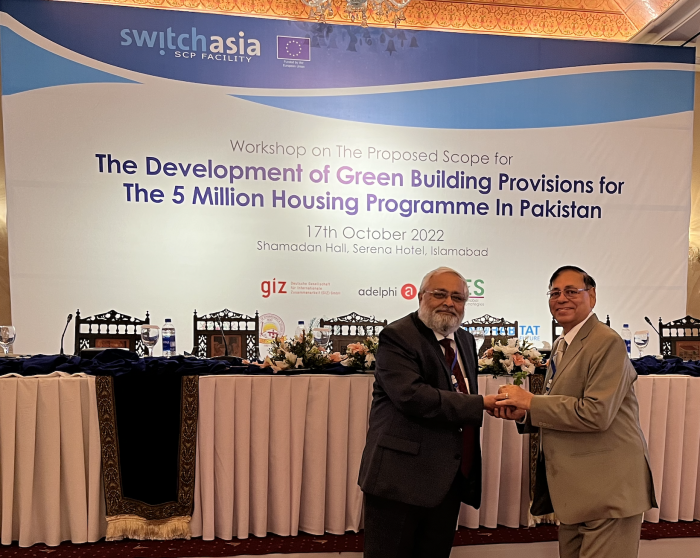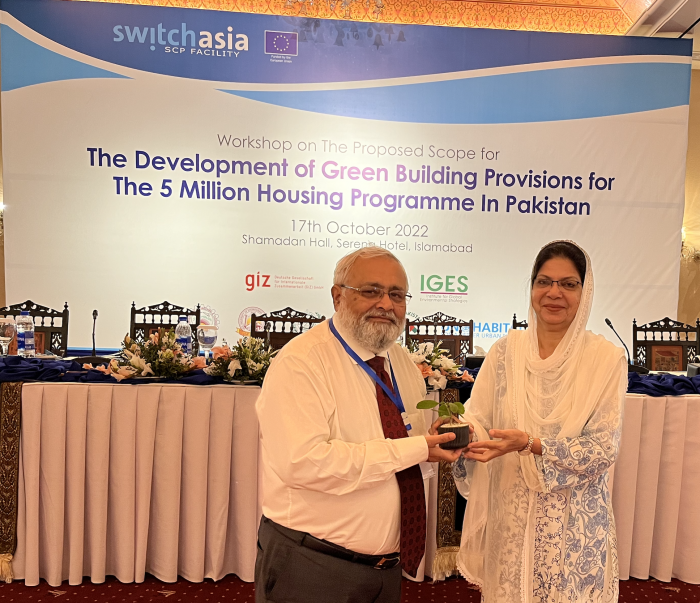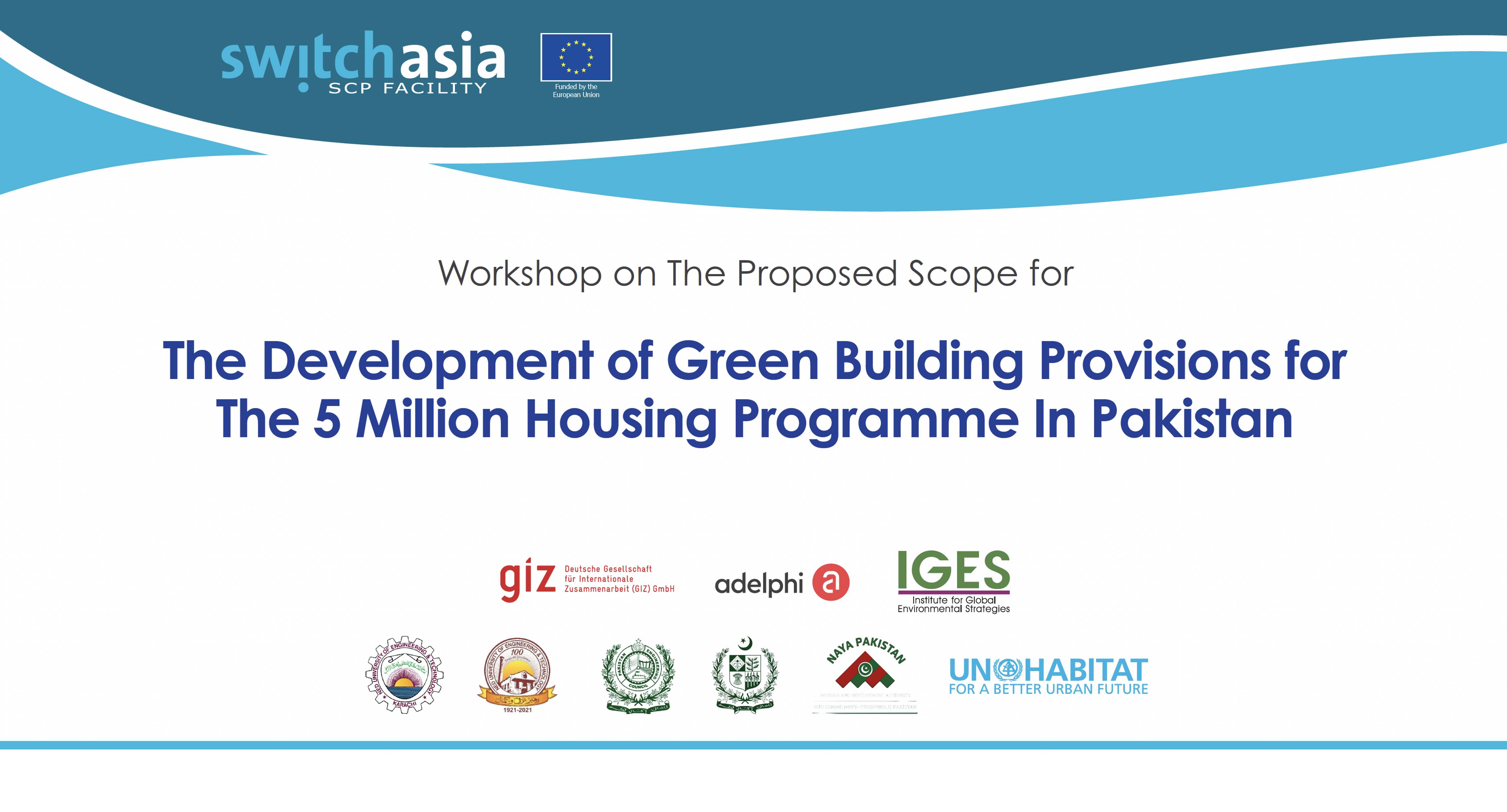
Through the Naya Pakistan Housing and Development Authority, five million housing units are planned to be delivered in the coming years. They are designed to provide amenities to all citizens, focusing on the financially underserved and middle-income communities, as a measure of comprehensive socio-economic uplift. This programme presents an opportunity for the country to switch to and promote green building interventions through the piloting of Green Building Code provisions for Pakistan.
SWITCH-Asia is the largest cooperation programme on Sustainable Consumption and Production funded by the European Union. Since 2016, the programme is working with the Ministry of Climate Change in Pakistan, UN Environment, UN Habitat-Pakistan, among other stakeholders to promote Sustainable Consumption and Production (SCP), with a focus on green building and waste management. As an outcome of this work and in line with the Government’s commitment to pursue climate resilient and green development initiatives, Policy Guidelines for the Green Building Code for Pakistan have been developed. A Roadmap for the Development of a new Green Building Code for Pakistan has also been proposed to successfully develop and implement such policy.
On 17th October 2022, the multi-stakeholder consultative Workshop on the Proposed Scope for the development of Green Building Provisions for the 5 Million Housing Programme in Pakistan was organised at the Serena Hotel, Islamabad.
Co-organised by SWITCH-Asia in partnership with the Ministry of Climate Change, NED University, Pakistan Engineering Council, NAPHDA and UN Habitat, the overall aim of the workshop was to foster the exchange of knowledge and expertise in order to improve the Green Building provisions by incorporating Sustainable Consumption and Production (SCP) principles, including in the areas of Energy Efficient Housing, Green Energy Buildings, Waste Management, Water Use Efficiency, Indoor Air Quality, and Climate. More than seventy participants attended the event and joined the discussions.
In her opening remarks, Dr Zinaida Fadeeva, Team Leader, SWITCH-Asia SCP Facility, stated how theurgency and importance of this work was emphasized by the dramatic floods in Pakistan. The situation pointed at the need to facilitate development of high-quality climate-resilient housing that is optimised for low emissions.
Mr. Thomas Seiler, Deputy Head of the EU Delegation to Pakistan, stated how the EU is committed to climate resilience and mitigation, and how the building and housing sector is a cornerstone of improving climate change responses.
Dr. Sarosh H. Lodi, Vice Chancellor NED University, presented how joining together different fields of expertise was needed to bring about a green building code that is relevant for the Pakistan national context and its varied climate zones.
Mr Jawed Khan, UN Habitat, mentioned the importance of national strategies. He stated that a lot of work has gone into developing a pathway for the Green building Code, as well as the National Action Plan on SCP, supported by SWITCH-Asia, and how both lead the way to minimizing our ecological footprint, as the only way forward.
Sen. Rukhsana Zuberi stated how important implementation, both in terms of laws and processes, was to make sure a Green Building Code is used to its full potential.
Engr. Muhammad Najeeb Haroon, Chairman, Pakistan Engineering Council lauded the initiative to bring forward a Green building Code, and promised to bring in through the Council an expert view to the government and decision-makers, also on green buildings.
After the opening speeches, a panel discussion was followed by working groups and technical presentations. In conclusion, Prof. Farrukh Arif, Associate Professor, Civil Engineering Director, NED University, thanked all participants and contributors. He highlighted the importance of the results of the working group sessions, and how insights will be integrated into the piloting provisions for the 5 Million Housing Programme. The technical document is under development and will be published by SWITCH-Asia in the coming months.
